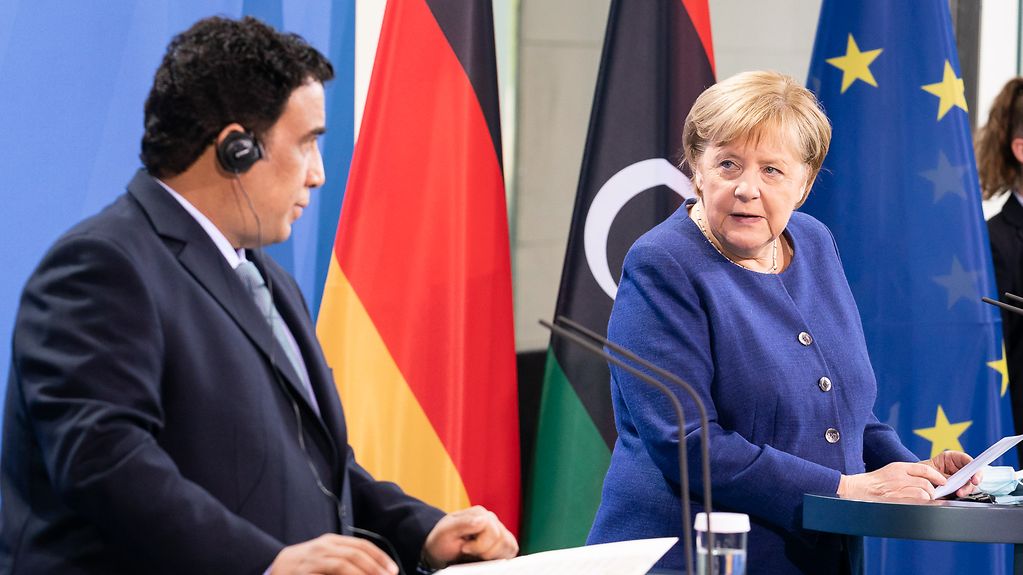Chairman of the Libyan Presidential Council visits Berlin
In a meeting with the president of the Libyan Presidential Council, Mohamed Younis Menfi, Federal Chancellor Angela Merkel stressed the need for Libya’s future to be decided by its citizens. The agenda for the talks included the peace process, the upcoming elections and the economic situation in Libya.
2 min reading time

Federal Chancellor Merkel welcomed president of the Libyan Presidential Council Menfi: “People in Libya need a decent livelihood.”
Photo: Federal Government/Kugler
In remarks before her meeting with Mohamed Younis Menfi, president of the Libyan Presidential Council on Friday, Federal Chancellor Angela Merkel explained that the Federal Government had engaged closely with Libya “because we believe that ultimately, a diplomatic solution to the problems in Libya could help achieve peace in a range of ways: not only for Libya and Libyans, but for the continent of Africa as a whole.”
Elections: preparations leave much to be desired
Libya’s parliamentary and presidential elections are slated to take place on 24 December, according to a timetable drawn up by the Libyan Political Dialogue Forum (LPDF), with support from the Federal Government and the United Nations. However, the Federal Chancellor noted that preparatory work for the elections left much to be desired, and much remained to be done. These were issues she intended to bring up in the subsequent talks, she said.
Withdrawal of foreign troops and mercenaries
“The question of Libya’s future must be decided by Libyan forces and Libyan citizens without external influence,” according to the Federal Chancellor, who stressed the importance of accelerating the withdrawal of foreign troops and mercenaries. At the same time, the country’s economy would need to receive a boost. Merkel observed that although Libya’s oil production makes it a rich country, poverty and shortages are widespread. “People in Libya need a decent livelihood,” said the Federal Chancellor, who pledged Germany’s support as Libya moves towards economic stability, which would include the work of foreign businesses.
The Federal Government initiated the Berlin Process in September 2019, through which international diplomatic efforts are supporting the United Nations’ work to bring peace to Libya. This led to the first Berlin Libya conference on 19 January 2021, which aimed to provide joint support for Libya’s peace process, the reconstruction of democratic institutions and the implementation of political reforms. Since then, significant progress has been made in bringing stability to the country, including a ceasefire agreement that was reached in October 2020. The Libyan Political Dialogue Forum arose from the Berlin conference, and in February 2021 elected a transitional government of national unity led by Prime Minister Abdul Hamid Dbeibeh.